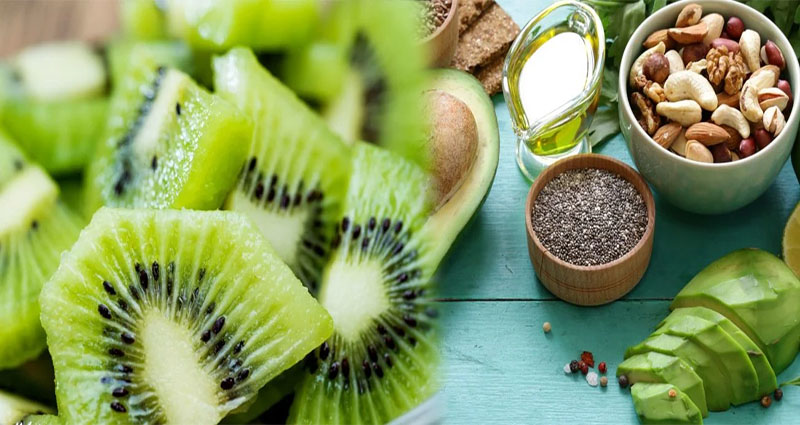Your skin is the largest organ in your body, so it’s important to take care of it. If you want healthy skin, you should focus on the foods that will help your body produce collagen and elastin, which are both necessary for strong, supple skin.
Vitamin C
Vitamin C is an antioxidant that helps to fight free radicals. It’s a water-soluble vitamin and can be found in citrus fruits, tomatoes, bell peppers and other fruits and vegetables. You can also take vitamin C as a supplement if you don’t eat enough of these foods regularly or if you have a specific deficiency of this vitamin.
Vitamin E
Vitamin E is a fat-soluble vitamin that can help you maintain healthy skin. It’s an antioxidant, which means it helps prevent cell damage caused by free radicals (harmful byproducts of metabolism).
Vitamin E is particularly helpful for people who suffer from dermatitis or eczema, as well as those who want to reduce wrinkles and age spots on their face. Vitamin E also has anti-inflammatory properties that may relieve acne symptoms, according to research published in the Journal of Drugs in Dermatology.[1]
Zinc
Zinc is one of the most important nutrients for healthy skin. It is an antioxidant and helps with wound healing, acne, skin infections and psoriasis.
Zinc also plays a role in collagen production which keeps your skin firm and elastic. If you’re deficient in zinc then you may experience dryness of the lips or mouth (xerostomia).
Selenium
Selenium is a trace mineral that is found in soil, water and food. It is important for the immune system and antioxidant function. Selenium also helps to protect your skin from sun damage by blocking free radicals that cause damage to healthy cells in your body.
Selenium deficiency may lead to various health issues such as loss of hair color, brittle nails or dryness of hair and skin (Source).
Calcium
Calcium is important for bone health, but it’s also essential for skin health. While calcium helps to maintain the elasticity of skin, it also helps to maintain the strength of your epidermis.
Calcium plays an important part in signaling molecules that tell cells when they need to divide or die off. This process is called apoptosis (or programmed cell death). Without enough calcium in your body, these signals become confused and can lead to problems like cancer development or aging at an accelerated rate.
Omega-3 Fatty Acids
Omega-3 fatty acids are essential to good health, and they’re also important for healthy skin. They can reduce inflammation and improve the appearance of your skin by reducing redness and swelling. Omega-3s may even help with acne, as they reduce sebum production (the oil that clogs pores).
If you’re looking for an easy way to get more omega-3s in your diet–and keep them there–try eating fish at least twice a week. Salmon, tuna and mackerel are some of our favorite sources for this nutrient because they contain both EPA (eicosapentaenoic acid) and DHA (docosahexaenoic acid), two types of omega-3 fats that have been shown to have positive effects on various aspects of human health including heart disease prevention. If those aren’t options for you then consider taking a fish oil supplement or eating flaxseeds on top off yogurt instead!
These supplements can help you improve your skin without any negative side effects.
Supplementation is a great way to improve your skin without any negative side effects. These supplements can help you improve your skin without any negative side effects.
Here are some of the most popular supplements for healthy looking skin:
- Fish oil: Fish oil contains omega-3 fatty acids, which play an important role in keeping the immune system strong and promoting healthy cell function. Omega-3s also help reduce inflammation, which is linked with acne flare-ups and dryness.*
- Vitamin C: This antioxidant prevents damage from free radicals (unstable molecules) that cause premature aging.*
- Biotin: Biotin is a water-soluble B vitamin often used as a supplement for strengthening hair or nails.*
It’s important to note that these supplements should not replace eating well! If you’re trying out new diets or adding new foods into your diet plan make sure they fit into what we’ve talked about today so you know how much protein/carbs etc., these foods contain before adding them into our daily meals plans.”
We hope that this article has helped you learn more about the proven benefits of taking supplements for healthy skin. We know that it can be tempting to just go with what your doctor recommends, but we encourage you to ask questions and do your own research if there are any doubts about whether or not something works. Remember: there’s no harm in trying out a new supplement if it sounds like something that could help!












